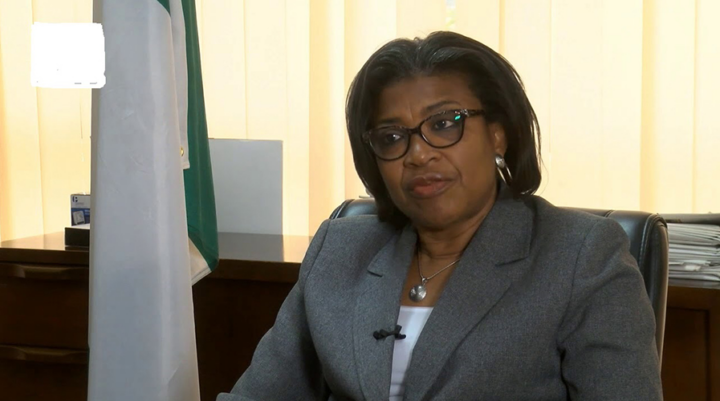Infostride News reported that the Debt Management Office (DMO) of Nigeria has obtained budgetary approval for external debt borrowing totaling N1.7 trillion. This significant announcement was made by Ms. Patience Oniha, the Director General of DMO, during the 2023 Annual Business Summit of the Capital Market Solicitors Association (CMSA) held in Lagos. The budgetary approval corresponds to approximately $2 billion when converted to the official exchange rate.
Speaking at a fireside chat as part of the summit, which focused on “Recent Developments in Sub-Saharan African Sovereign Debt: Implications for Nigeria,” Oniha provided insights into the country’s external borrowing plans and the rationale behind them. She highlighted that the current economic climate hasn’t been conducive for African countries looking to issue Eurobonds, citing market conditions as a major factor.
Oniha stated, “The reason that there’s no plan to issue a Eurobond is that the market has not been open to many African countries. If you look at the whole of this year, no African countries have been able to issue Eurobonds. We’re told that we have advisors who have been working with international banks and, maybe, in a queue for markets to be open. Once the market is open and the rates are good, we will go to the market.”

She then delved into the underlying reasons for Nigeria’s pursuit of Eurobonds. The government initiated the Eurobond scheme in 2011 to achieve two primary objectives: bolstering external reserves and reducing reliance on domestic borrowing. Additionally, it aimed to address the crowding-out effect, a phenomenon where excessive government borrowing competes with the private sector for funds, potentially crowding out private investment.
Oniha emphasized the alignment of these objectives with the broader financial strategy, saying, “We are very much on course with the point about supporting reserves. If the markets are open, there’s already a provision in the budget for external borrowing.”
Regarding the interest rates associated with external borrowing, Oniha clarified that they are market-dependent. She underscored the importance of evaluating the current market rates, rather than historical data, to determine the terms of borrowing. The DMO closely monitors these rates, conducting regular updates, and only proceeds with external borrowing when it is financially advantageous.
Rising debt profile in Nigeria has been a topic of concern. Oniha acknowledged that Nigeria’s debt has been on the rise since the country exited the Paris Club. The key driver of this increasing debt burden has been the country’s persistent budgetary deficits, spanning over two decades. This trend has emerged due to lower-than-expected revenue, leading to the necessity of borrowing to cover the fiscal gap. As of June, Nigeria’s total debt stock had reached approximately N87 trillion, with the Ways and Means of the Central Bank of Nigeria playing a significant role in this escalation.
In light of these developments, Oniha emphasized the importance of active citizen participation in the budget formulation process. She argued that the engagement of citizens, who are the primary stakeholders, is essential for the development of the country. Governments in developing nations are increasingly recognizing the value of citizens’ input in the budgetary process. Citizen engagement ensures that government policies align with the needs and aspirations of the people, ultimately fostering the nation’s development.
The potential for a debt crisis in Nigeria was discussed by Razia Khan, Chief Economist & Head of Research at Standard Chartered Bank, Middle East & Africa. Khan acknowledged that Nigeria has faced challenging economic conditions but expressed her belief that the country does not currently face a high risk of a debt crisis. To further strengthen the economy and reduce this risk, Khan suggested several key measures: lowering the fiscal deficit, minimizing crowding out effects, implementing policy reforms to regulate the interest rate environment,
Support InfoStride News' Credible Journalism: Only credible journalism can guarantee a fair, accountable and transparent society, including democracy and government. It involves a lot of efforts and money. We need your support. Click here to Donate
